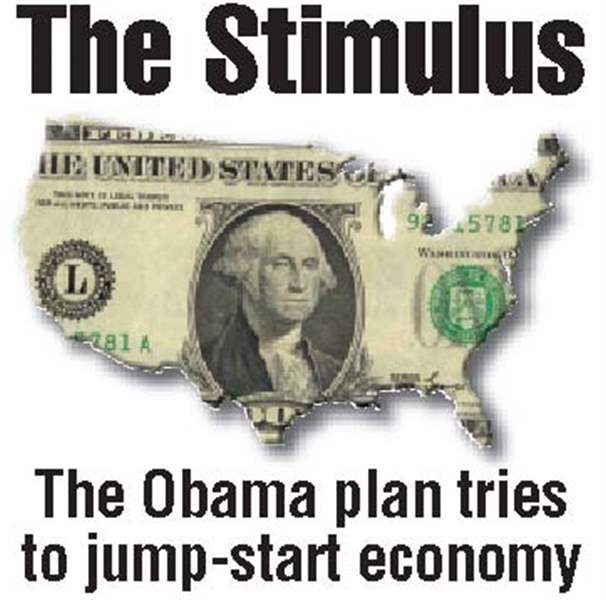
Take-home pay should rise in month
2/26/2009
Starting in about a month, most middle and low-income workers will start seeing a little extra in their weekly paychecks, courtesy of the government's new $787 billion stimulus package.
Tax withholding tables have been revised to give eligible workers $400 spread out over the rest of 2009, which for most people will amount to a $10 weekly increase in their take-home pay.
"Ten bucks is ten bucks, but for me, I've got four kids," said Andrew Zuerner, an assistant warehouse manager at the Costco Wholesale store in West Toledo. "I might be able to eat out once every two weeks. I don't know that it will make that much of a difference in our lifestyle."
But that ten-spot is likely to be spent, helping to spur the economy, said economist Ken Mayland of ClearView Economics of Cleveland.
"The bottom line is: You put more money in people's hands, and some good portion of that will be spent," he said.

A Cincinnati business offers basic facts and a little opinion about tax withholding under the stimulus. The IRS wants an April 1 start at the latest. Many will get somewhat less than $13 a week.
The new Making Work Pay tax credit stems from a $116 billion centerpiece of the Obama Administration's new American Recovery and Reinvestment Act, commonly known as the stimulus package.
The Internal Revenue Service has asked employers to implement the changes as quickly as possible, but by April 1 at the latest. Employers and payroll services will receive new withholding tables and limits from the IRS.
The program provides that working people will get a tax credit for 6.2 percent of their earned income, up to $400 per person per year or up to $800 total for a married couple filing a joint tax return.
Not everyone will get the extra money. The credit phases out between $150,000 and $190,000 in adjusted gross income for married couples filing jointly, or singles with incomes between $75,000 and $95,000. Nonresident aliens working in the United States are ineligible to receive the tax credit.
It follows last year's checks that many received under the Bush administration stimulus program, which provided up to $600 per eligible individual or dependents.
For the reduced tax withholding on paychecks, Scott Mezistrano, a senior manager for the American Payroll Association, said small businesses that handle payrolls manually might take the longest to make the adjustments in take-home pay.
Workers do not need to file new W-4 tax withholding forms, Mr. Mezistrano said.
The new withholding tables aren't complicated to implement for payroll managers, but the quick timetable is causing some concern, said Joan Jones, corporate payroll manager for Therma-Tru Inc. in Maumee.
"We have to kind of drop what we're doing and just get this done now," she said. "There's a lot of people scrambling to work on payroll changes to get this done by the end of the first quarter."
Ms. Jones, treasurer of the Toledo chapter of the American Payroll Association, said many payroll managers are getting questions from employees anxious to know when their paychecks will increase.
"People are sort of wanting it now," she said. "We're getting a lot of questions from employees asking, 'When are we going to see this?'•"
Mr. Mayland, the economist, said the effects of the Making Work Pay tax credit should not be underestimated. Last year's stimulus checks were helpful, but were perceived as a one-time thing. "Generally, the rule of thumb is that tax cuts that are perceived as more permanent get more of a response. This is perceived as more permanent," he said.
The Making Work Pay credit will also be available in 2010.
"When you add it all up, the tax-cuts portion of this stimulus is $225 billion dollars," Mr. Mayland said. "It's a part of the process that will help turn things around. This is not insignificant."
Contact Jon Chavez at:
jchavez@theblade.com
or 419-724-6128.